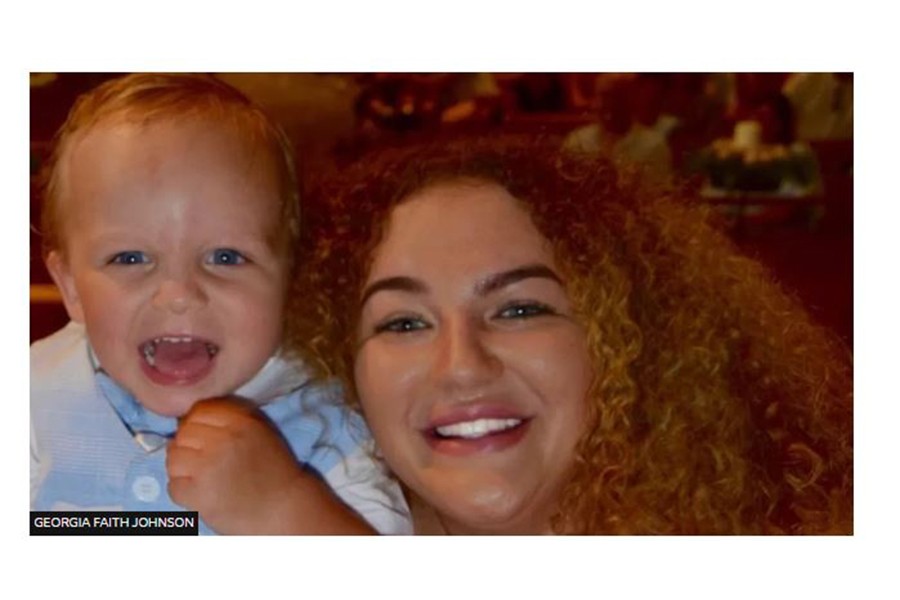A mother has spoken of her horror after being told she would have to wait hours for an ambulance after her son became "lifeless" on the way to A&E, reports BBC.
Georgia Faith Johnson called 999 when Tobias, two, had a seizure at their Cardiff home, but was told it was an eight-hour wait.
As she tried to get to A&E he went "floppy", but was told to monitor him at the side of the road.
The Welsh Ambulance Service said it was under extreme pressure.
It comes as new figures show response times for the most serious calls - where someone's life is at immediate risk- have fallen to a joint all-time record low as the service deals with a spike in 999 calls.
"It was super scary," she said. "It just petrifies to say the least that my lifeless two-year-old wasn't enough of an emergency to get the help of the ambulances. The cuts to the NHS are just so scary".
'I spent four nights in A&E waiting for a bed'
'Can you please tell them to hurry up or I shall be dead'
Speaking to BBC Radio Wales Breakfast, Georgia said she called 999 when Tobias' eyes rolled to the back of his head and the colour drained from his face at home on Monday evening.
She said the 999 call handler told her to "get to the hospital immediately, but there are no ambulances available".
Georgia bundled her son - who has had febrile convulsions in the past but never a seizure - in the car and tried to get him to A&E, but within minutes they were stuck in traffic.
"As I turned to look at my son, unfortunately he was pretty lifeless," she said.
"He was floppy and the colour was drained from his lips and all of his face."
She called 999 and asked for an ambulance again, and was told she needed to track her son's breathing, which was extremely fast.
She said she was told: "You need to get him out of the car, lay him flat and ask somebody to get a defibrillator in case he goes into cardiac arrest.
"At this point I was just crying and begging: Please just send an ambulance to which she was responding it would still be a five-hour wait at least."
After pulling over into a bus lane, Georgia was helped by a man to get Tobais out of the car and onto the side of the road.
She was clapping, touching his face and calling his name in an effort to get Tobias to regain consciousness.
"The call handler said he would probably be able to hear me, so I was trying to stay calm."
Two other people also came over to help her - an off-duty fireman who called his colleagues to try and get any emergency services out, and a woman trained in first aid who helped put the toddler in the recovery position.
After an hour, an ambulance in the traffic spotted them and drove them straight to hospital.
"They were amazing. They jumped straight into action," Georgia said.
Tobias then had to be sedated for 19 hours to stop the seizure before being sent home the next evening.
He is being treated as epileptic and is taking medication that will make any prolonged seizure subside, but will slow down his breathing, which would mean calling an ambulance again.
"What's really scary is, if I lived in a rural area and actually couldn't get him into the car and waited those eight hours, my son would have been dead," Georgia said.
"To think that what happened to my son and I is looking at becoming the norm in Wales is just incredibly sad and worrying.
"Not just for people like us but for the staff of the NHS too who are working under immense pressure as it is."
A row in the Senedd went viral this week between Mark Drakeford and Welsh Conservative leader Andrew RT Davies when the latter attacked the first minister over ambulance waiting times.
The Mr Drakeford hit back, saying it was partly the Conservatives' fault for making a mess of the UK's budget and reputation.
Georgia said she was "reassured" by how strongly Mr Drakeford feels about the matter of ambulance waiting times, and that she could relate to his frustration.
She said she did not want to pin the blame on anyone specifically, but stressed the ambulance service and the people of Wales deserved a lot better from the Welsh government.
Figures show that in September 50 per cent of responses to red calls, where a life is at immediate risk, arrived within eight minutes - well below the target of 65 per cent.
The service received 18.1 per cent fewer calls on average per day than the same month last year, with 2,300 calls per day made to the NHS 111 service.
However, the ambulance service saw a rise in the most urgent, life threatening calls in September, at just over 10 per cent.


